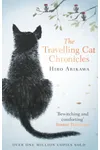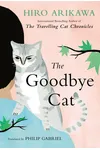Picture a Japanese storyteller who spun a tale of a cat and his human wandering across Japan, touching hearts worldwide—meet Hiro Arikawa! This acclaimed light novelist from Kōchi, Japan, has a knack for blending tender human-animal bonds with heartfelt narratives. Her international bestseller, The Travelling Cat Chronicles, has solidified her as a beloved voice in contemporary Japanese literature, captivating readers with her unique, animal-perspective storytelling.
Born on June 9, 1972, in Kochi City, Arikawa’s journey from a small coastal prefecture to literary stardom is as inspiring as her stories. With a style that dances between light-hearted and profound, she’s won hearts and awards, including the prestigious Dengeki Novel Prize. Let’s dive into the life, works, and magic of Hiro Arikawa!
The Making of Hiro Arikawa
Hiro Arikawa grew up in Kōchi, a place where the Pacific Ocean meets lush mountains, perhaps sparking her love for vivid settings. Little is known about her early years, but her passion for storytelling bloomed early. Influenced by unexpected sources like Gamera films and the classic movie The Great Escape, Arikawa brought a cinematic flair to her writing. Her big break came in 2003 when she won the Dengeki Novel Prize for Shio no Machi: Wish on My Precious, a novel praised for its poignant love story and detailed military structures. Published in 2004, it marked her as a rising star in Japan’s light novel scene.
Hiro Arikawa’s Unforgettable Stories
Arikawa’s works are a delightful mix of genres, from military thrillers to heartwarming tales. Her debut, Shio no Machi, showcased her ability to weave romance with intricate world-building. She followed this with the Jieitai Sanbusaku (SDF Trilogy), a series exploring Japan’s Self-Defense Forces, blending action with human drama. But it was Toshokan Sensō (Library War, 2006) that skyrocketed her fame, topping Hon no Zasshi’s entertainment list and inspiring manga, anime, and a live-action film. This alternate-history saga, where libraries fight censorship with paramilitary might, is both satirical and thrilling.
Then came The Travelling Cat Chronicles (2012), a global phenomenon translated into English in 2017. Narrated by a cat named Nana, it follows a man’s journey to find his pet a new home, exploring love, loss, and friendship. Arikawa’s knack for animal perspectives shines again in The Goodbye Cat, a collection of seven feline-centric stories. Her novel Shokubutsu Zukan (Evergreen Love) and Hankyū Densha also inspired films, proving her stories’ universal appeal.
Arikawa’s style is light yet profound, often using animals or quirky settings to explore deep emotions. Her works, published as hardbacks—a rarity for light novels—reflect her publisher’s faith in her literary weight. Whether it’s a cat’s musings or a library’s rebellion, Arikawa’s stories resonate with warmth and wit.
Why Hiro Arikawa Matters
Hiro Arikawa’s impact transcends the light novel genre. Her ability to craft stories that blend humor, heart, and social commentary has made her a guru for Japan’s millennials, particularly “freeters” seeking meaning beyond traditional paths. The Travelling Cat Chronicles has touched readers globally, with its universal themes of love and letting go. Her work, often adapted into films and anime, bridges literature and pop culture, making her a cultural ambassador of modern Japanese storytelling.
Arikawa’s animal narratives, inspired by classics like Natsume Sōseki’s I Am a Cat, offer a fresh lens on human experiences, earning her critical acclaim, including Seiun Award nominations. Her stories remind us to cherish life’s fleeting moments, making her a timeless voice in literature.
- Born: June 9, 1972, Kochi, Japan
- Key Works: The Travelling Cat Chronicles, Toshokan Sensō, Shio no Machi, The Goodbye Cat
- Awards: Dengeki Novel Prize (2003), Seiun Award nominations
Ready to fall in love with a cat’s journey or a library’s rebellion? Grab The Travelling Cat Chronicles and dive into Hiro Arikawa’s heartwarming world!

